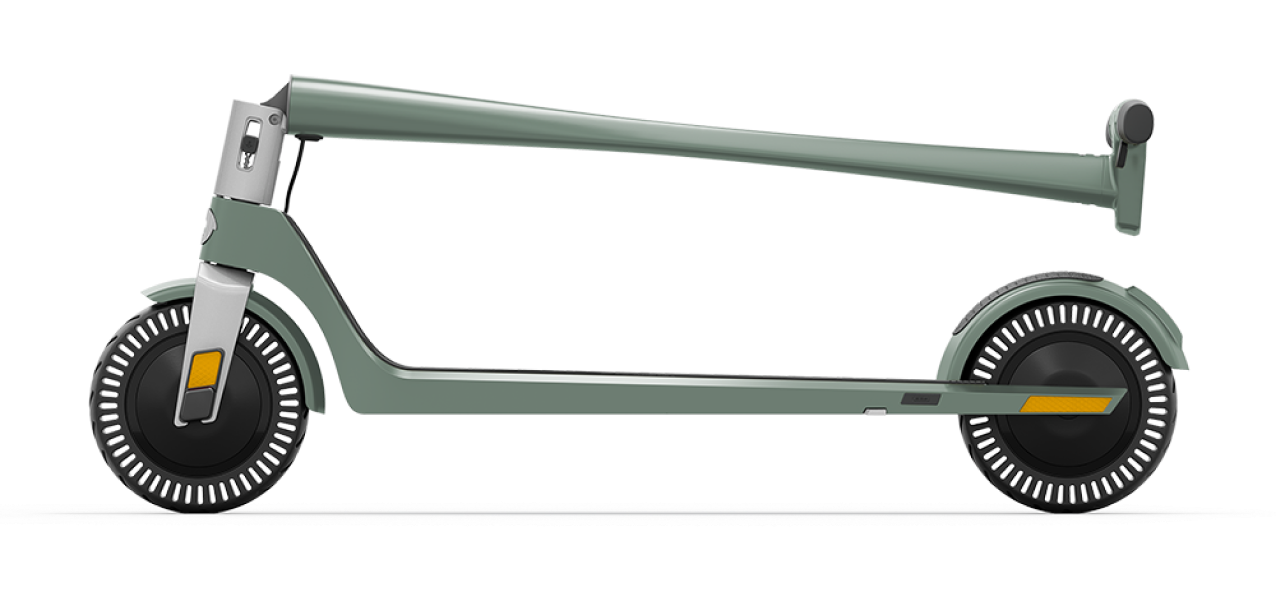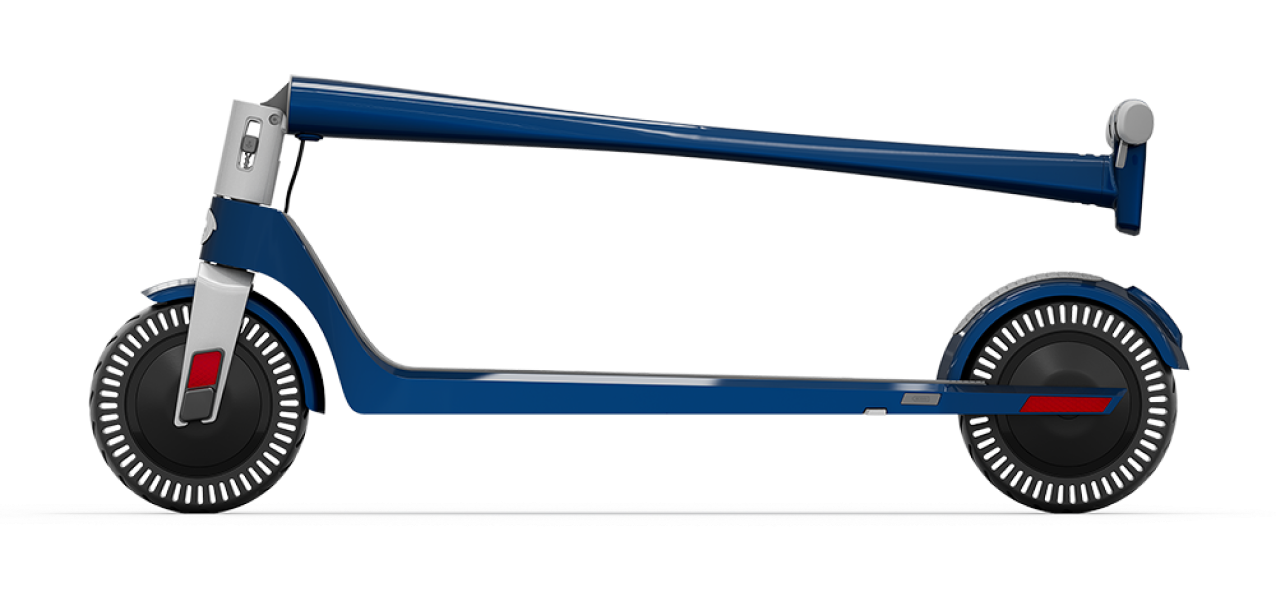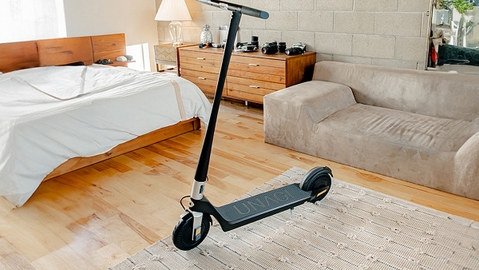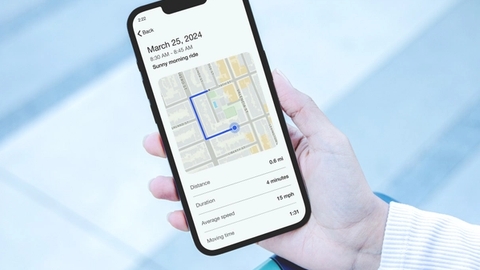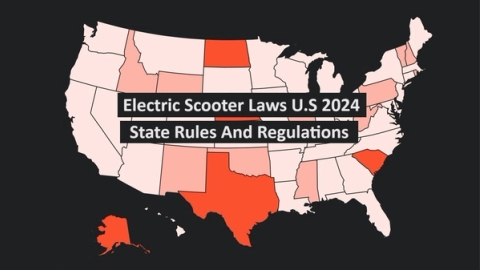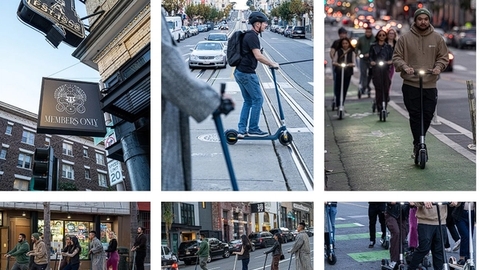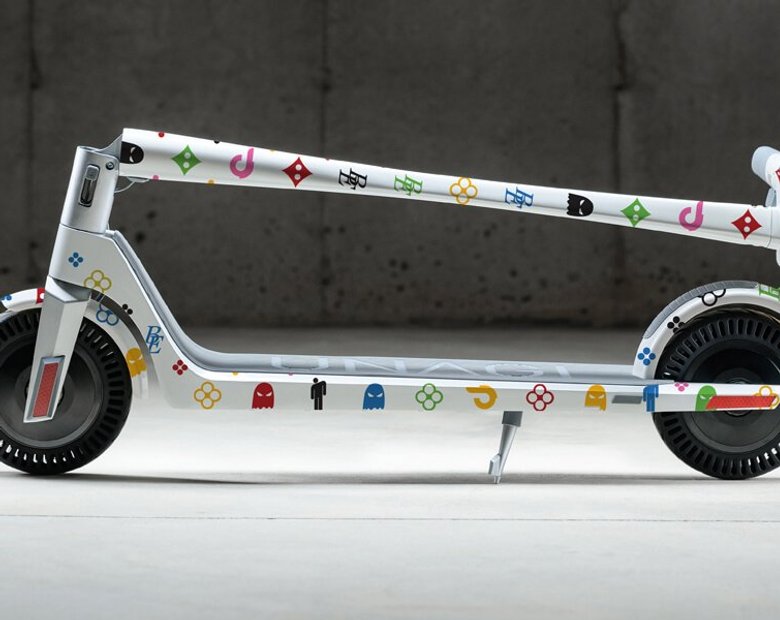With White Glove Love, we go where you go. All-Access members who are traveling can get an Unagi electric scooter for use during their trip, delivered to their hotel or Airbnb, at no extra charge. Now available in 8 U.S. cities.
Electric scooters provide a convenient and cost-effective commute. Using electricity for power, electric scooters are paving the way for a greener future and proving a worthy alternative to e-bikes and electric cars.
Despite their popularity, some naysayers and negative press claim e-scooters aren't as green as they seem. Is it true? We're about to explore that question in this post, so stick around to find out.
The facts on e-scooter popularity
In 2017, the first electric scooter ride-sharing service became available in Santa Monica, and its success saw other cities introducing them as a convenient way to get around. Revenue from the e-scooter market is $66.38 million in 2023, but that number will rise to $154 million in 2027 (Statista).
As many countries now allow private scooter owners access to public roads, more people are choosing to save money and invest in their own scooters.
Research from EsferaSoft shows that there were 50 million e-scooter and e-bike units sold worldwide in 2020, but they expect the number to rise to 129 million in 2028, with North America being the market leader.
As you can see, the growth of electric vehicles has no risk of slowing down—but why are people so negative about electric scooters?
Negative perceptions of scooters
As with all forms of transportation, scooters get their fair share of negative publicity, with some claiming they're unsafe, but studies prove the scooters themselves aren't to blame. Many scooter accidents occur when riders use the sidewalk, and males are more likely to have accidents than females (NIH).
Furthermore, research published by The Telegraph reveals that four in ten scooter riders are under the influence of alcohol when they crash, showing us that rider error and lack of concentration are significant contributors to injuries.
Do scooters have their risks? Absolutely. But it's the same with cars, bikes, and other transportation modes.
You've probably seen plenty of articles where people claim scooters aren't as green as we'd like to think they are or that their batteries result in a lot of wastage, but we're here to debunk those rumors and give you the cold hard facts.
Let's look at the most prevalent e-scooter myths.
Myth One: E-scooters have a negative environmental impact

Some studies claim e-scooters have a negative impact on the environment, with a study from North Carolina University stating that electric scooters create higher greenhouse gas emissions than mopeds, walking, and bicycles.
The study alone leads to a worrying conclusion that scooters aren't contributing positively to the fight to save our planet. Here are the facts of this myth.
The study focused on shared scooters
Shared scooters are a good idea in theory, but they have some drawbacks. These scooters travel all over cities, with riders able to hop on and off after a journey, leaving the scooter safely away from other road users.
However, the main issue with shared models is that the company has to travel around collecting the scooters to go through the recharging process.
If they use gasoline cars, the company's carbon footprint will inevitably increase.
Shared scooters are targets for vandalism
While scooters don't produce carbon emissions, they require a manufacturing process. However, the real issues with scooter-sharing companies come from vandalism and improper usage of scooters.
For example, The Guardian published an article about sharing initiatives and how they impact the environment.
Between September and December 2018, volunteers found around 100 Bird and Lime scooters thrown into Lake Merritt, and the Scoot Network lost 200 of their scooters in just two weeks due to vandalism.
As the entire life cycle of rental scooters is relatively small, they're not an environmentally friendly solution.
Fact: Private e-scooters are eco-friendly
As with most things, riders are more likely to care for a scooter that belongs to them. It's easy for people to mistreat scooter rentals because they're usually not held responsible and don't have to pay for any repairs.
While ride-sharing scooters can be detrimental to the environment, privately owned models are a practical solution, as nobody wants to damage them or throw the scooter in lakes.

Myth Two: Electric scooters won't last long
Another popular myth surrounding e-scooters is that they won't last as long as traditional vehicles, with many people claiming the scooters need to be replaced every few months. Again, we must examine the facts to see if this myth is true.
The good news is that while there are some truths associated with it, the studies don't factor in the type of scooter and how usage impacts its life cycle.
Quality is key
There are plenty of budget e-scooters out there, offering riders on a budget the opportunity to save money and still enjoy the convenience they offer. However, any product that uses cheap materials for its construction will naturally have a shorter lifespan than premium scooters.
Aluminum and carbon fiber are sustainable materials, but the scooter's batteries will also impact the environment. That's why premium scooters often use lithium-ion batteries because they don't contain any lead and are easy to recycle.
Longevity depends on usage
Like all vehicles - including electric cars - scooters require care and maintenance. The frequent usage of rental scooters and the carelessness of riders results in a shorter lifespan, with a 2021 Warwick University study concluding the average rental scooter has a lifespan of three months.
However, their lifespan should - and could - be up to five years, which again highlights that misuse of the scooters ultimately sends them to landfills.
Fact: Scooters can last years when maintained
Scooters can be long-term electric vehicles, but shared models again pose significant sustainability issues. Investing in a premium scooter solely for your use can reduce life cycle emissions and ensure you get years of usage out of your chosen model.
If cost is a factor, Unagi offers an All-Access Subscription that gives you unlimited usage of a commuter scooter with free services and insurance.
Myth Three: E-scooters clutter the streets

Well, this one is more of a fact - but it doesn't need to be. We've all seen articles about electric scooters taking up the sidewalk and causing obstructions in the road, which can lead to more gasoline car emissions as people have to navigate around them or take longer routes.
Again, a similar pattern emerges because people are more likely to leave shared scooters in inconvenient places.
Shared scooters are easy to dump and go
The convenient nature of shared scooters often means people can get to their destination, hop off, and leave the scooter on the sidewalk or sometimes even in the middle of the road. Then we have the people who decide to throw them in lakes, causing huge issues for the environment.
Private scooters are different because people care about them more and will usually find an allocated parking space, ensuring their scooter is protected and won't cause any obstructions.
Commuter scooters are designed to be compact
Commuter scooters are a convenient solution for all your travel needs because they're designed to be compact and offer unrivaled portability. For example, the Unagi Model One Voyager weighs just 29.6 lbs and has a one-click folding mechanism.
You can also purchase a carry bag and take the scooter to your office or college, ensuring it's not at risk of vandalism.
Myth Four: Electric scooters can't replace other forms of transportation
One of the main arguments we regularly see against scooters is the belief that they can't become your primary mode of transportation. We disagree because scooters have powerful capabilities, and many models can substitute public transit.
A solid e-scooter will deliver
In some cases, scooters can't replace public transport or cars, and many people use them as last-mile solutions. However, these scooters usually have low ranges and battery capacities, impacting their ability to serve as your main commuter tool.
A scooter with up to 25 miles of range and a fast charging time can be a worthy commuting or city riding tool, helping you avoid cramped buses and trains.
Technology will improve
We've made substantial technological advances in the past decade, and the future looks bright for electric scooters. As scooters evolve, we'll likely witness affordable models with superior ranges that can remove the need for cars and public transportation altogether.
Some performance and off-road scooters already have over 60 miles of range, so commuter scooter brands can increase battery capacity in the future while still creating lightweight models.
Key facts on electric scooters:
- Gas-powered vehicles are over $700 more expensive each year than electric cars. However, charging an electric scooter costs significantly less than with an electric car.
- According to the EPA, passenger vehicles emit 4.6 tonnes of carbon dioxide yearly, while electric vehicles emit no tailpipe emissions.
- Electric bikes weigh between 44 and 66 lbs, but the Unagi Model One Classic weighs just 28.5 lbs.
- When used correctly, e-scooters can reduce traffic congestion and noise pollution.
- Climate change continues to be a significant risk for our planet, but electric vehicles can lower greenhouse gases and help out (Carbon Brief).
The bottom line

Electric scooters are changing how people commute and reducing dependence on fossil fuels, making them a worthy option for a smaller carbon footprint. Investing in a private scooter is a wise decision if you want to contribute positively to the environment and enjoy complete flexibility.
Energy efficient, durable, and built to serve your unique riding needs, using a private e-scooter is now possible in many cities. Unagi is at the forefront of commuter scooters, and our commitment to delivering supreme scooters that deliver on all bases is making micro-mobility accessible for everyone.
If you'd like to take advantage of our All Access subscription, please feel free to place your order today and get ready to enjoy a new way of life.

Read more.

Read more.

Read more.

Read more.

Read more.

Read more.

Read more.

Read more.

Read more.
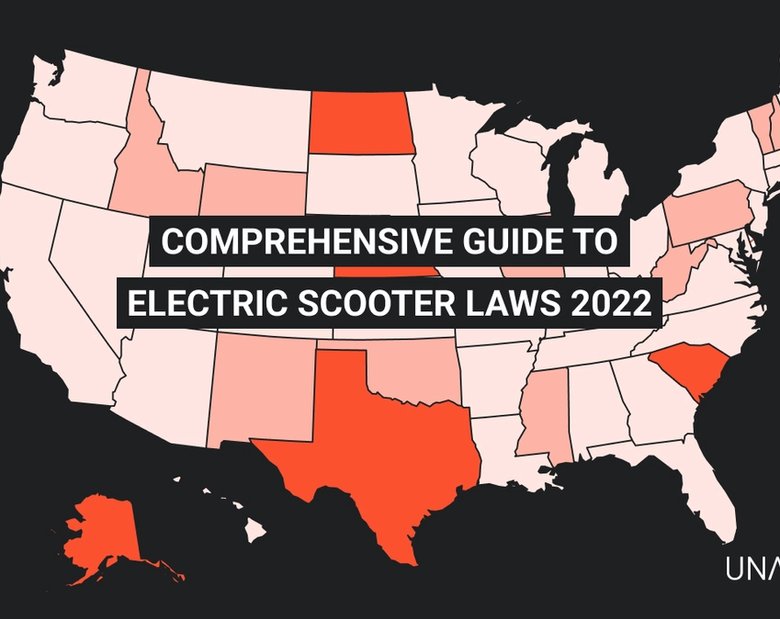
“Is my scooter legal?” is a question many are increasingly asking. The micromobility industry is one of the fastest-growing and most exciting in the world—with promises for...in addition to abundances of the basics of time and money savings. And with this pace of innovation comes a struggle for regulation to keep up.
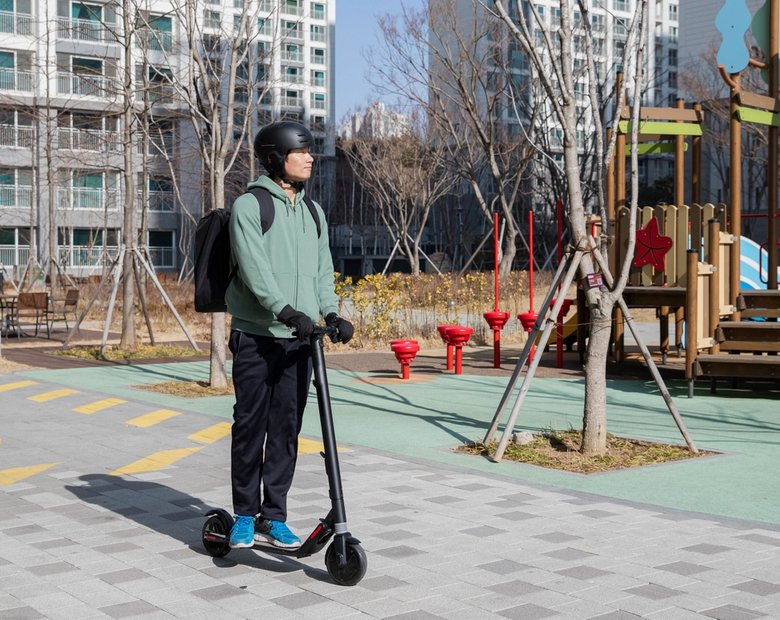
So, you're thinking about joining the electric scooter revolution, huh? You've seen those sleek and stylish scooters zipping around town, effortlessly gliding through traffic, and you can't help but wonder: Are electric scooters easy to ride?

In this guide, we'll break down what defines a lightweight electric scooter, why you should choose one, and the top features you should look for.
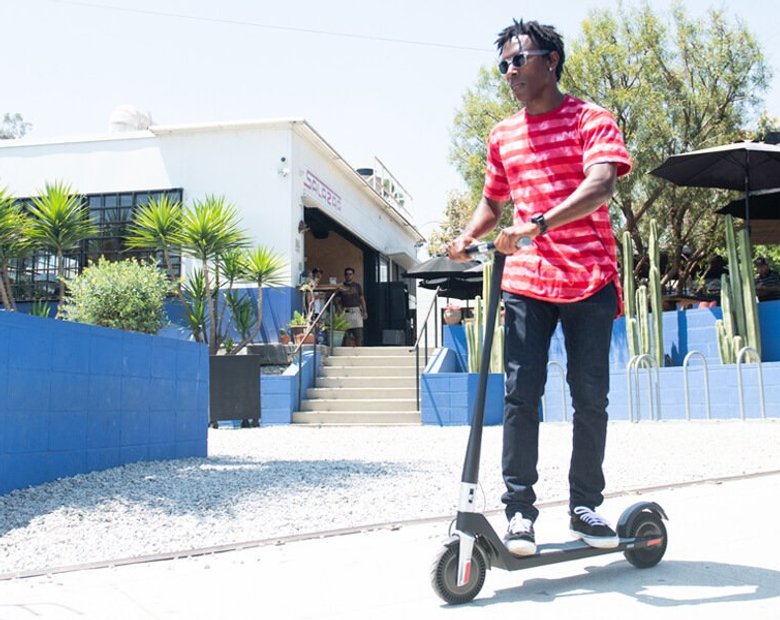
Want to get the most out of your electric scooter battery and extend your riding adventures? We've got you covered with our comprehensive guide full of maintenance tips and best practices.

*Disclaimer: Unagi, INC. has used best efforts, but does not in any manner guarantee the accuracy of the below findings regarding electric scooter laws in the United States or internationally. Electric scooter riders or those considering to purchase or begin…

It’s beyond question that we must drastically reduce carbon emissions in the coming years to head off the worst effects of climate change. How we do that has been a matter of considerably drawn-out debate. As individuals, it can be…

If you're considering riding an electric scooter for the daily urban commute - or even just for recreation - this article will give you the lowdown on getting insurance for an electric scooter.
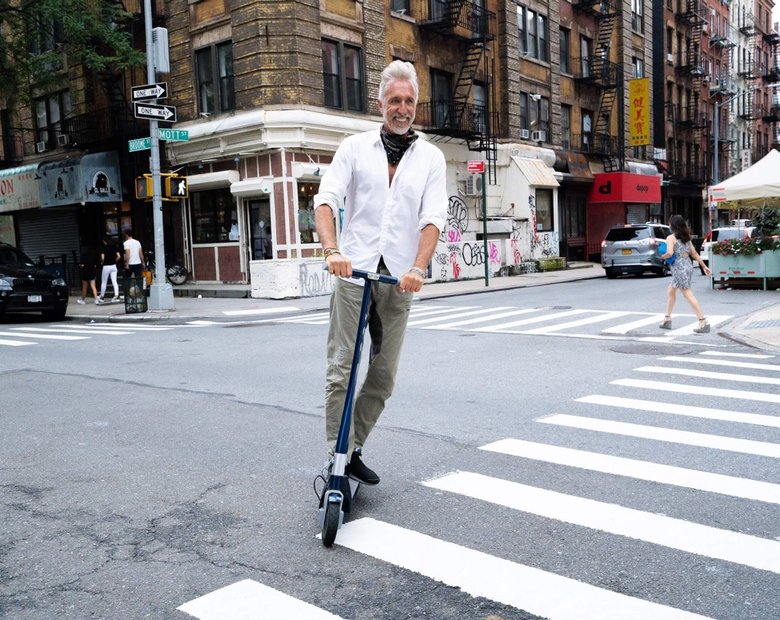
In many regions, there's a clear restriction against riding electric scooters on the road, with the rules steering their use towards designated areas such as bicycle lanes, multi-use paths, and shared street paths.
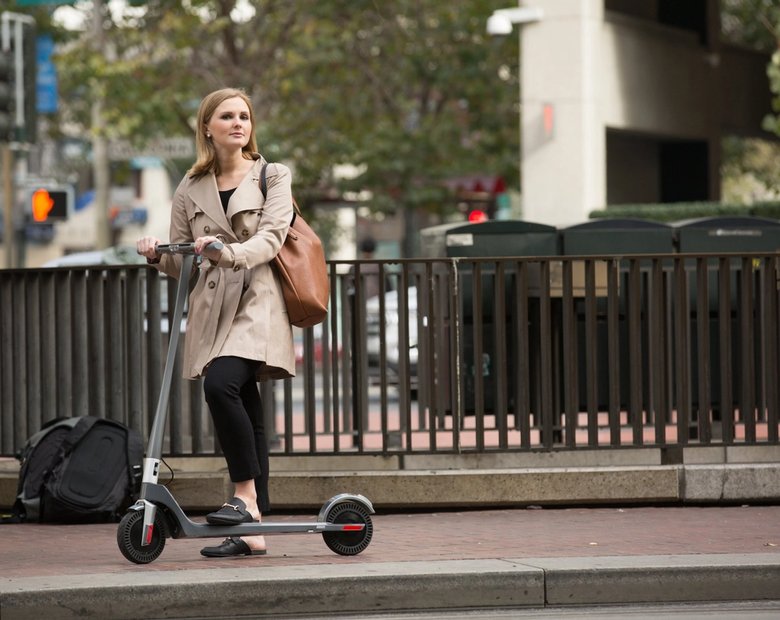
You’ve seen them all over your city’s streets, and everyone who rides one looks absolutely thrilled. So, why haven’t you picked up your own folding electric scooter yet? Maybe you’re worried about whether e-scooters require a driver’s license, or a…

The basis and the premise of my work is that we either operate out of love or we operate out of fear...Time is currency. The coolest thing about the scooters is that it's really quick, and it goes uphill. From there, traveling more efficiently and having a good time doing it--I think that's the most important thing.

Cynthia Leu has a full plate. A tech worker by day, Cynthia spends her off time balancing the parallel lives of a powerlifter, entrepreneur, mental health advocate, and more. Riding Unagi helps this USMC veteran cut down on everyday…

https://www.youtube.com/watch?v=7m2hVBE62LY Rasheed Muhammad is sick of Los Angeles traffic. In order to preserve his sanity, Rasheed has traded his everyday driving habit for the portable and beautiful Unagi Model One. It’s an essential accessory for navigating LA streets -- and…

Rich Lee, Co-Founder of San Francisco’s SPRO Coffee Lab, wants to share his love for coffee with the world. He depends on riding Unagi to avoid the hassle of navigating the parking crunch in the booming Mission Bay neighborhood.…

